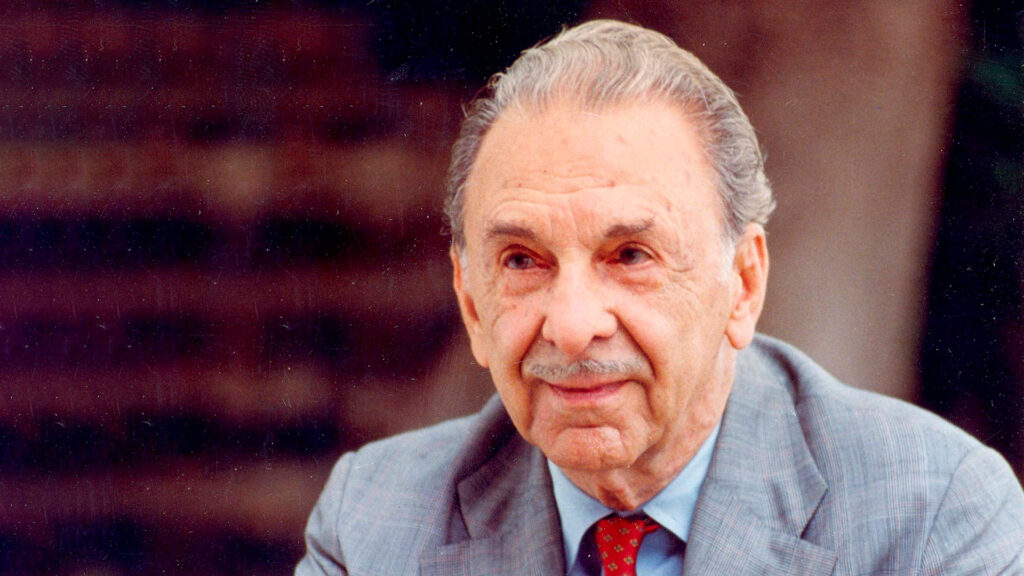JRD Tata was a man who put India on the map in aviation. He is often considered to be the “father” of Indian Airlines and Air India. Tata was a pioneer in the field of civil aviation in India, and his legacy remains with us even today.
About JRD Tata
JRD Tata was born in Paris, France on July 29, 1904, to a Parsi father and French mother. He was educate in England and then at Massachusetts Institute of Technology, where he studied mechanical engineering. In 1925, he joined the Tata Group as an apprentice engineer and began to work for his father’s Tata Steel Company.
Life of Tata
His birth
JRD Tata was born on July 29, 1904, in Paris, France to a Parsi father and French mother. He was the second son of noted businessman and founder of the Tata Group, Jamsetji Nusserwanji Tata (1839–1904). A year and a half later after his birth, he was brought to Mumbai by his parents.
Tata’s education
JRD Tata did his schooling at St George’s Grammar School in Bombay. From 1923 to 1925, he travelled to Paris and later traveled to the USA and studied at Massachusetts Institute of Technology where he graduated in 1928 with a degree in Engineering.
His personal life
JRD Tata marry to Thelma Tata and they have two children: Aroonara (22 June 1945) a daughter and Elvira (30 March 1947) a son. Aroonara marry to Kumar Swamy, who is an avid equestrian. While Elvira marry to Anand Mahindra, an automobile industry tycoon.
JRD’s career
After his return from America, JRD Tata took up a job with the Tata Steel Company in London and worked there for four years. In 1930, he joined the Tata Group as an apprentice engineer and began to work for his father’s company which was just beginning to expand into steel production and iron ore mining in India.
Early career of J.R.D Tata
In 1925, JRD Tata joined the Tata Group as an apprentice and was first placed in the employees’ store. Soon after that, he began working for his father’s Tata Steel Company. In 1928, he became the champion of Bombay Hockey Association and played for the Tata team that reached National level at Allahabad within 10 years of playing for Bombay Hockey Association. He retired from hockey in 1940 as a result of an eye injury, which had affected his vision since 1933.
Father of Indian civil aviation
JRD Tata was the first person to think of civil aviation as a commercial enterprise in India. He took advantage of the situation and turned it into a prosperous business.
In 1932, Tata Airlines was founded by JRD, in collaboration with Air France. In 1933, Tata Airlines made its debut when it flew a de Havilland Puss Moth single engine aircraft named “Albatross” which could accommodate four passengers. It flew its first international flight from Mumbai to Karachi via Ahmedabad and Delhi in 1934. In 1938; Tata Airlines began service under the name of Air India.
Joined Tata Sons
In 1936, JRD Tata joined the Tata Sons as an executive director. He was also give a seat in the Board of Directors of the Tata Group and became chairman in 1941 when his father died.
His further career
In 1947, JRD Tata became the first Governor of Bombay State and held that post till 1954. In 1953; he founded Air India Limited, which later changed its name to Air India International Limited. He is credit as being the person who made Air India a prosperous airline by placing it on a solid financial footing and turning it into a profitable business.
In 1970–1971, he was award Presidential Citation for his services to Indian Civil Aviation by President Dr Rajendra Prasad on the occasion of Indian Republic Day (14 August). JRD Tata was given the honorary title of “Proud Past Alumni” by the Massachusetts Institute of Technology in 1972. In 1977, he was awarded the Padma Bhushan award by the President of India.
He was also famous for his work in improving human rights in India and working towards the abolition of untouchability. Tata strongly believe that poverty could only be eradicate by making society more equitable. He is remember by many as a humanitarian who always had an eye on improving industrial and social conditions in India.
In 1980, JRD Tata retired as chairman of Indian Airlines and Air India but continued as a member of their Consultative Committees till 1982.
Award and honor
The French government honored JRD Tata with the title of Officier de la Legion d’Honneur for his outstanding contribution to the Indian Civil Aviation.
He was also award an honorary doctorate from various western universities.
JRD received many awards in his lifetime including: Padma Bhushan (1962), Padma Vibhushan (1970), Grand Cross of Légion d’honneur (1973) and the Giannino-Bianchi Gold Medal (1977). The Government of India’s civilian honors was given to JRD in recognition of his distinguish services to the nation. He gets Bharat Ratna in 1992.
His Legacy
JRD Tata is remember as the pioneer of Indian civil aviation. And as a man who laid the foundations of numerous institutions in India. He also trained many executives and engineers from his own Tata Group and from other companies who were instrumental in building enterprises in India and abroad. His contributions to the Tata Group are on record even today which clearly shows what a great leader he was for the group, a role model for all to follow.
The airline that JRD started was name “Air India” which later became “Air India International”. It handled domestic travel between major cities of India, while Air France provided its international services. In 1948, Air India became part of the national flag carrier, Indian Airlines Ltd.
